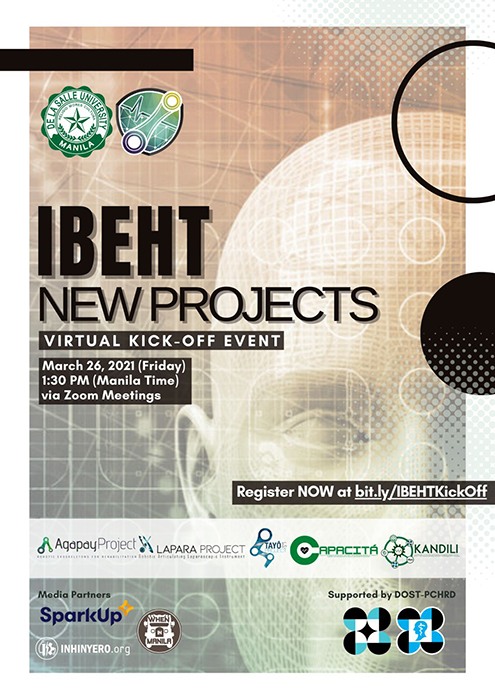De La Salle University-Institute of Biomedical Engineering and Health Technologies (DLSU-IBEHT) is fully supported by the Department of Science and Technology-Philippine Council for Health Research and Development (DOST-PCHRD) that serves as the national institute for R&D, training, and knowledge and technology transfer in the field of biomedical engineering and health technologies in the Philippines. IBEHT’s main goal is to pave the way in accelerating the development of biomedical devices and technologies by providing state-of-the-art facilities and services to universities and research institutions, enabling them to transform their ideas into market-ready products.
The event aims to (1) highlight new government-funded projects, (2) increase awareness of the initiative and efforts of DLSU and PCHRD in developing impactful technologies, and (3) showcase the importance of collaboration and partnership in advancing research and technology commercialization.
About the New Projects:
- The AGAPAY Project: Stage 3 will demonstrate the safety, feasibility, and effectiveness of the developed upper limb robotic exoskeleton on healthy human participants. Also, the project will establish and develop testing protocols while taking into consideration existing international standards for its therapy program.
- The LAPARA Project Stage 2 shall have the prototype certified of the overall safety of the Mechanical, Electrical, and Electromagnetic design of the Prototype, using international and local regulations and standards as a basis. Once certified safe and ethics clearance has been obtained, the prototype shall undergo pig cadaver tests to prove its overall performance during surgical operations under ideal conditions.
- The TAYÔ Project STAGE 2 shall have the developed device undergo rigorous performance and reliability tests to conform to local and international safety and compliance standards. After which, the device will be tested in a controlled environment using healthy human participants to further prove its safety and effectiveness.
- Project CAPACITÀ targets to enable and equip researchers, inventors, technology transfer officers, and related personnel with the skills and knowledge in the commercialization of biomedical engineering and health technologies, particularly on the development of training, workshops, resource materials, needs-assessment, exhibit fairs, and industry immersion.
- Project KANDILI aims to develop a competitive intellectual property management system that will effectively facilitate the commercialization success road mapping for biomedical and health technology researchers and efficiently transform government research funding into products and services that serve the people for greater societal impact.
Lastly, the event is free for all so register now at bit.ly/IBEHTKickOff. E-Certificates will be provided to the attendees.
For inquiries, you may contact Ms. Pamela Tadeo at pamela.tadeo@dlsu.edu.ph
Together let’s support DLSU-IBEHT and DOST-PCHRD projects to uplift the Philippine Health System! See you on the 26th virtually!





